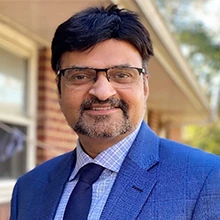 Installing solar panels to light village homes. Photo: © Dominic Sansoni / World Bank
Installing solar panels to light village homes. Photo: © Dominic Sansoni / World Bank
As governments roll out enormous stimulus packages, the suddenness and unprecedented scale of the coronavirus disruption requires that revival and reconstruction be a task shared by all players in the economy. The COVID-19 shock has opened a window of opportunity to scale up action to protect the environment as well as improve social safeguards with a view to reducing poverty. Sovereign wealth funds (SWFs) can help us reach a more sustainable and equitable future if combined with the ethos of environment, social and governance (ESG) investing.
SWFs are state-owned, pooled investment vehicles, whose resources are collected through state reserves, budget and trade surpluses, and the sale of natural resources like oil. They are deep pocketed funds with a long-time horizon. Socially conscious investing based on ESG factors is an investment strategy that appraises financial returns along with measurable social and environmental goals. Normally, SWFs invest in projects in other countries that have deep and well-developed markets and sound political and legal systems, to help ensure the safety of their investments and enforceability of their contracts. But now there is an opportunity to pursue these investments as part of longer-term international development strategy.
Today, ESG investing is an increasing desirable way to support a COVID recovery where sustainability is the focus. Investments in clean energy and sustainable agriculture are widely recognized paths to reducing carbon emissions. ESG investments in green infrastructure could include projects like green power, communication infrastructure like fiber to the home networks, innovative public health infrastructure, and research-based intervention capabilities in tackling pandemics.
These are all areas that require large investments at scale and may be viable only in the long term. They need the kind of patient long-term capital investments that SWFs are capable of bringing in. Not only are ESG investments attractive from a social goods point of view, but they are also sound investments from a financial point of view. They can mitigate and help blunt the effects of large-scale shocks.
In addition to having patient capital to wait for those long-cycle returns, some SWFs also have a “triple bottom line” mandate to focus on people, the planet, and profits and thus may be the ideal candidates for making such ESG investments. These funds could help bring in the required financial discipline, skills for appraising opportunities, and best-of-breed partners to lend professionalism to investments in the emerging sectors. In fact, the SWFs may find that the long-term returns from these investments are even more attractive than their conventional project investments.
The World Bank and IFC can help countries develop their capital markets to attract investments in more sustainable solutions to better meet the SDGs. This would enable SWFs to move beyond their traditional areas on investment and would have desirable knock-on effects for underdeveloped economies, while also helping the world become better prepared to face pandemics in the future.
According to the Morningstar Direct Report, sustainable funds are attracting record inflows in the current quarter, notwithstanding the crisis. In fact, financial power players such as JP Morgan and CBS Securities have stated in their reports that the COVID-19 crisis will accelerate ESG investments. The investing world is waking up to the reality that sustainability is critical and helps mitigate risk. Most of the larger governments’ SWFs are increasingly keen to look at ESG investments as an asset class.
It’s a win-win for governments to seize this moment and develop an ESG investment strategy with their SWFs. It will lead to investments in a desirable asset class with higher risk mitigation, while also restarting virtuous, sustainable growth as economies increase employment and consumption.
Every crisis presents an opportunity to reshape our shared future. The COVID-19 pandemic has emphasized the need for sustainable solutions to help countries boost shared prosperity and end poverty. More attention to environmental, social and governance investments is a good step in this direction.



Join the Conversation